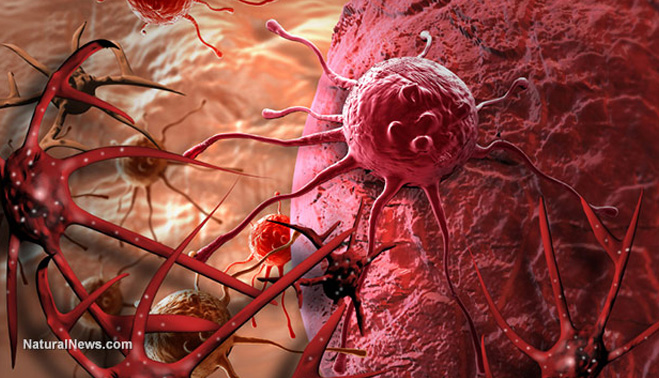![]() Home > Health
Home > Health
New Study Prompts Caution for All Those Taking Diabetes Medication: Some Drug Brands May Increase the Spread of Cancer

![]() May 3rd, 2016 | 09:02 AM |
May 3rd, 2016 | 09:02 AM | ![]() 2003 views
2003 views
UNITED STATES
Most people who are attuned to heathier living have long known that substances called antioxidants, which come in supplements but are more effectively found in superfoods like blueberries and broccoli, are major cancer fighters, and that, in general, the more of them consumed, the better protected we are.
But there are new hints that this health food dogma may not be completely accurate and, as noted by the journal Science, in some cases they may even help cancers grow.
And what's more, a new study now adds some fuel to that growing fire: Researchers believe that a pair of commonly prescribed diabetes drugs that contain antioxidant properties can also boost metastasis – at least in mice, the journal reported. Now whether this will actually apply to humans is a mystery at this point, but if proven true, it means that, once again, Big Pharma may have done more harm than good.
Double trouble for diabetes medicines
For years and years, scientists have known that reactive oxygen species – otherwise known as free radicals – have the ability to cause serious damage to cells and can even trigger some cancers. Antioxidants, research suggests, can neutralize those effects. As Natural News has reported, recent genetic testing has demonstrated that antioxidants can prevent and treat cancers.
But several recent studies indicate that there may be some negative outcomes associated with antioxidants as well. For instance, according to researchers at the University of Texas Southwestern Medical Center reported last fall, if cancer is already present in the body, then antioxidants can boost the process by which those cells also grow and spread, The Washington Post noted.
Martin Bergo, a cancer biologist at the Karolinska Institute in Stockholm, suspects that though free radicals can harm healthy cells, they can also be toxic to cells that are already cancerous. So that may mean if antioxidants curb free radicals they may also be of benefit to cancer cells rather than hurting them (once the cells are present).
Science reported further:
A team led by molecular toxicologist Donna Zhang at the University of Arizona in Tucson has now taken a different tack. With colleagues in China, she focused on a protein called NRF2. It regulates a cellular defense response that helps protect cells from oxidative damage caused by environmental toxins or carcinogens. Although NRF2 has many benefits, loss of NRF2 regulation leads to high levels in certain cancer cells, such as some lung cancers, and it may help them migrate, Zhang says.
Antioxidants "like petting" tumors
And as it happens, some diabetes drugs also activate NRF2 as a side effect, explains Zhang.
People who have type 2 diabetes are already at an increased risk of cancer, so what they will do with this new information regarding antioxidants "is a dilemma," said Zhang, adding that she believes diabetes patients with cancer should not take drugs that activate NRF2, just to be on the safe side.
Dr. David Nathan, director of the diabetes center at Massachusetts General Hospital in Boston, told Science in an email that "what is ironic here is that [free radicals are] generally thought to be bad in human diabetes," because they can cause dysfunction in cells that manufacture insulin, as well as lead to vascular complications. As such, antioxidant treatment has been touted as necessary, especially given the results of prior research indicating that such treatment is effective against cancer.
"Giving an antioxidant to a tumor cell is like petting it," Bergo says. "Groups all over the world are starting to find this [and] this paper really adds to the urgency."
Source:
courtesy of NATURALNEWS
by J. D. Heyes
If you have any stories or news that you would like to share with the global online community, please feel free to share it with us by contacting us directly at [email protected]